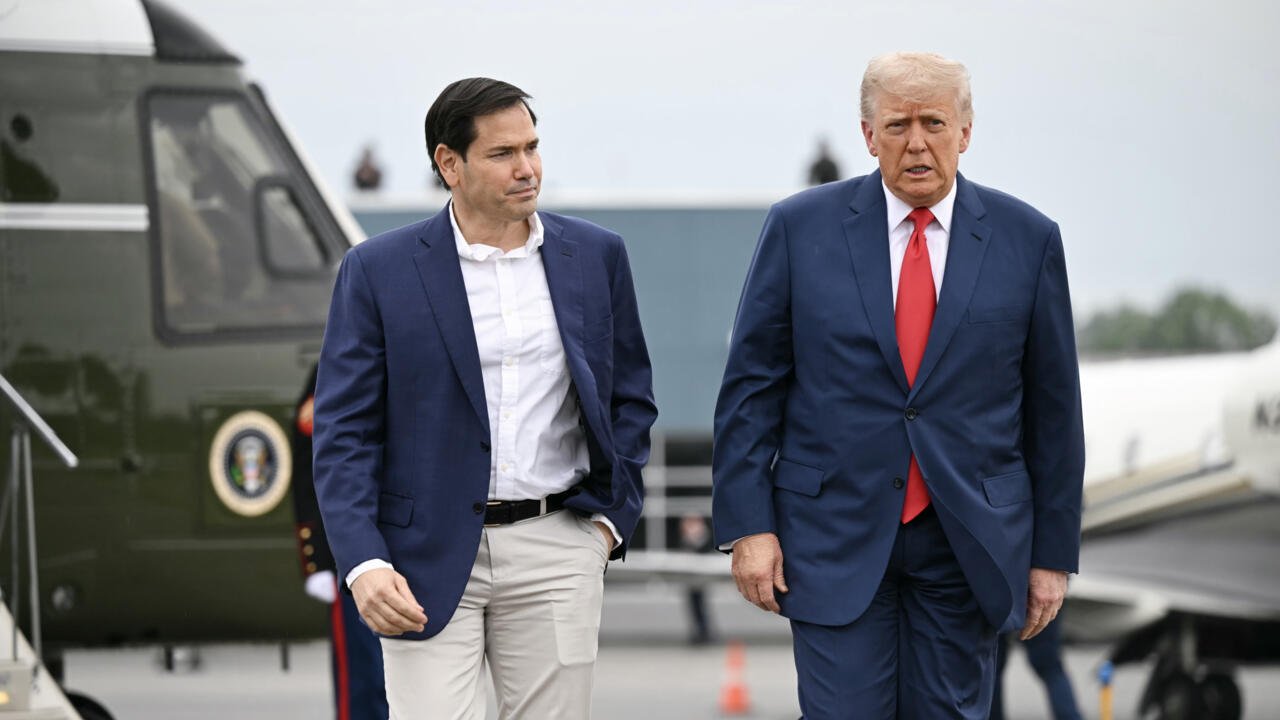KAMPALA, Kenya — Uganda is among 36 countries that could face new or expanded travel restrictions to the United States, according to a confidential memo from the U.S. State Department. This potential move by the Donald Trump administration signifies a significant broadening of its immigration policies, with implications for various nations across Africa, the Caribbean, Asia, and the Pacific.
According to an internal State Department cable seen by Vivid Voice News, and multiple international media outlets, the Trump campaign is exploring a sweeping revival and enlargement of his controversial 2017 executive order that barred entry into the U.S. from several predominantly Muslim nations.
Internal cable, signed by U.S. Secretary of State Marco Rubio on Saturday, June 14, 2025, has instructed U.S. diplomatic missions to notify the targeted countries.
These nations have been given a stringent 60-day deadline to comply with specific U.S. security and identity verification benchmarks, or risk facing full or partial bans on entry for their citizens. An initial action plan addressing these concerns is reportedly due by Wednesday, June 18, 2025.
“The Department has identified 36 countries of concern that might be recommended for full or partial suspension of entry if they do not meet established benchmarks and requirements within 60 days,” the cable sent out over the weekend said.
The concerns outlined in the memo are multifaceted and include issues such as the issuance of unreliable identity documents, weak cooperation with U.S. deportation processes, questionable passport security, and high rates of visa overstays.
In some instances, the document also cites alleged involvement of nationals in acts of terrorism or anti-American activities, though it clarifies that not all concerns apply uniformly to every country on the list.
For Uganda and the 24 other African nations on the list, including key partners like Egypt, Ethiopia, and Nigeria, the proposed restrictions could profoundly impact citizens seeking opportunities in the United States for medical treatment, education, business, and family visits.
Many Ugandans, particularly from the political and business elite, frequently travel to the U.S. for specialized medical care unavailable domestically. Expanded visa restrictions could force them to seek alternatives in other regions.
This latest development follows a presidential proclamation on June 4, which reinstated full travel bans on 12 countries and imposed partial restrictions on seven others.
The current proposed expansion would mark one of the largest enlargements of U.S. travel restrictions since their initial implementation in 2017 during Trump’s first term, which famously sparked widespread protests and legal challenges before being upheld by the U.S. Supreme Court in 2018.
While the U.S. State Department has not officially commented on the internal memo, and the White House has not responded to inquiries, the President has previously indicated his intent to make the travel ban “bigger than before” during his second term.
Critics, including Democratic lawmakers and civil rights groups, have already condemned the proposal, viewing it as discriminatory and echoing previous bans that disproportionately targeted countries in the Global South.
The coming weeks will be critical as the 36 targeted nations, including Uganda, formulate their responses to avoid potential new barriers to travel and visa access to the United States.
The countries that could face a full or a partial ban if they do not address these concerns within the next 60 days are: Angola, Antigua and Barbuda, Benin, Bhutan, Burkina Faso, Cabo Verde, Cambodia, Cameroon, Cote D’Ivoire, Democratic Republic of Congo, Djibouti, Dominica, Ethiopia, Egypt, Gabon, The Gambia, Ghana, Kyrgyzstan, Liberia, Malawi, Mauritania, Niger, Nigeria, Saint Kitts and Nevis, Saint Lucia, Sao Tome and Principe, Senegal, South Sudan, Syria, Tanzania, Tonga, Tuvalu, Uganda, Vanuatu, Zambia, and Zimbabwe.
That would be a significant expansion of the ban that came into effect earlier this month. The countries affected were Afghanistan, Myanmar, Chad, Congo Republic, Equatorial Guinea, Eritrea, Haiti, Iran, Libya, Somalia, Sudan and Yemen.
The entry of people from seven other countries – Burundi, Cuba, Laos, Sierra Leone, Togo, Turkmenistan and Venezuela – has also been partially restricted.
The scope and timeline of enforcement remain unclear, but the implications for international relations and the lives of thousands are significant.
A return to Trump-era policies
If enacted, the expanded ban would likely mirror or build upon Executive Order 13780, issued in 2017, which banned nationals from countries like Iran, Libya, Somalia, Syria, and Yemen.
That policy, widely criticized at the time, was eventually upheld by the U.S. Supreme Court in a 5–4 decision in 2018.
In the current proposal, the Trump campaign is reportedly focused on countries that fail to adequately share criminal or identity data, a DHS requirement for international travelers seeking U.S. visas.
Also Read: Trump blocks Harvard from enrolling foreign students, threatens wider crackdown
The countries under review also include Ghana, Cameroon, Iraq, and several others across the Global South.
Global and regional reactions
The inclusion of Uganda has sparked concern among civil society organizations and policymakers in East Africa.
Critics argue that such travel restrictions could unfairly penalize innocent travelers, including students, tourists, and businesspeople, while failing to address the root causes of migration or terrorism.
Uganda’s Ministry of Foreign Affairs has not yet issued an official statement, but senior diplomatic sources indicate that efforts are underway to seek clarification from U.S. officials.
Impact on travel and trade
Should the policy take effect, Ugandan citizens could face prolonged visa processing times or denials, affecting travel plans for education, healthcare, and business.
The travel ban may also have wider implications for trade and tourism between Uganda and the U.S., potentially reducing bilateral exchanges.
Experts note that such measures, if implemented broadly, could result in retaliatory restrictions and hinder global mobility at a time when international cooperation is crucial in addressing shared challenges such as climate change, health security, and conflict resolution.

